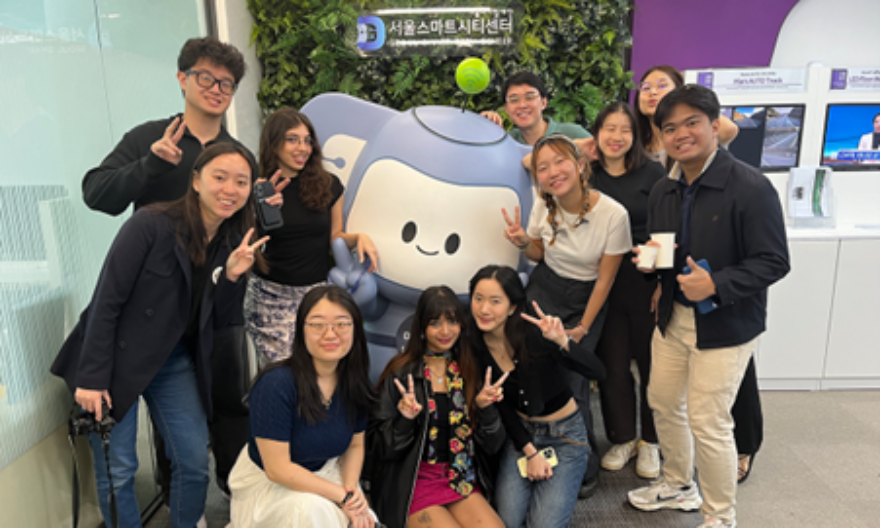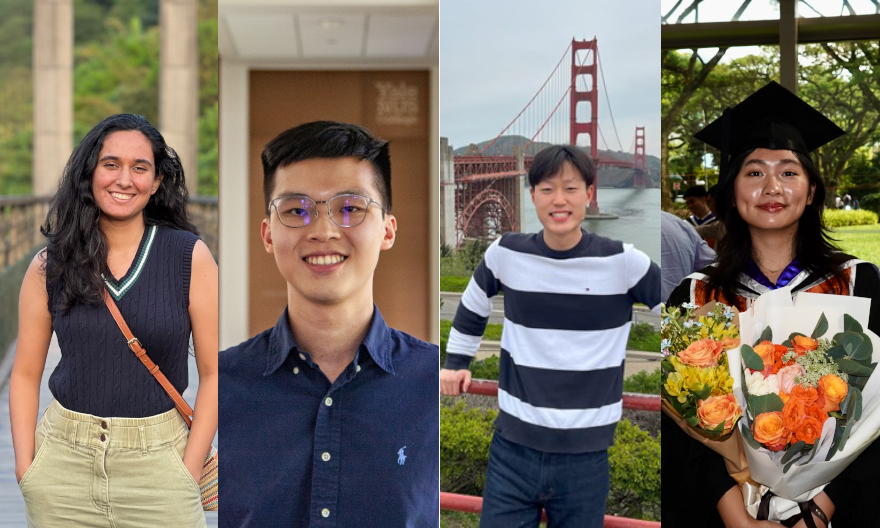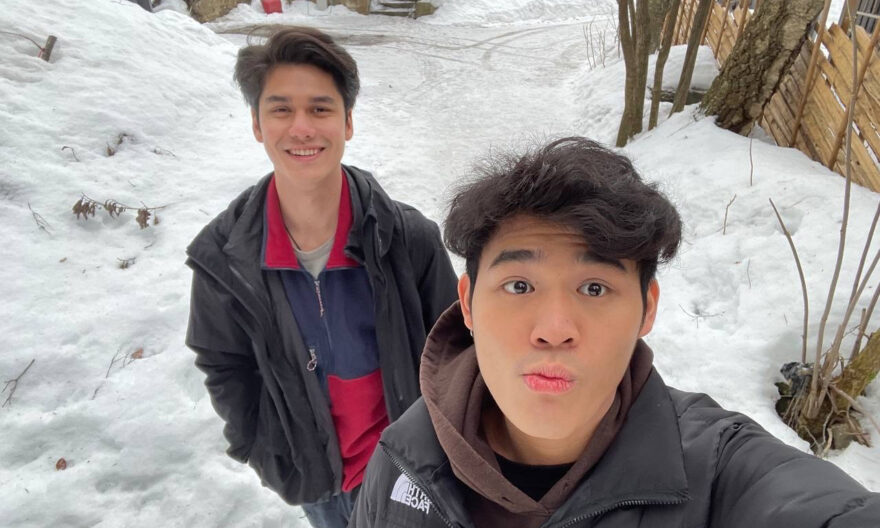New summer science fellowships offer Yale-NUS students cutting-edge research opportunities abroad
Every summer, Yale-NUS students are afforded diverse opportunities to explore their interests. This year, several students had the opportunity to participate in new summer science research fellowships offered in partnership with Yale University and Harvard University.
After spending a semester abroad in Yale University, Wang Jiayun (Class of 2019) remained there over the summer after she was offered the Yale Dean’s Fellowship for STEM research.
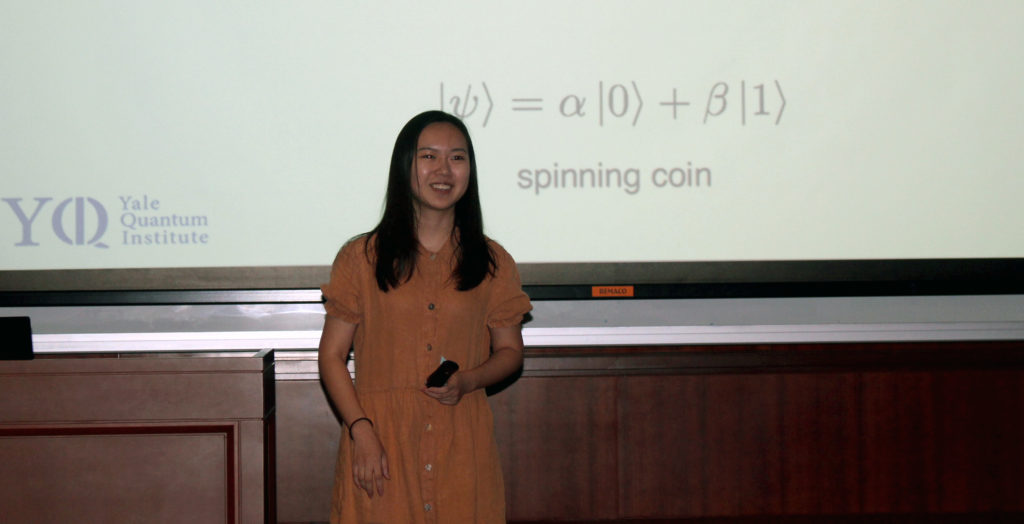 Jiayun presenting her research at the Summer Research Symposium held at Yale-NUS College from 4 to 6 September 2018. Image provided by Diya Kundu.
Jiayun presenting her research at the Summer Research Symposium held at Yale-NUS College from 4 to 6 September 2018. Image provided by Diya Kundu.
Jiayun worked at the Yale Quantum Institute on quantum computation, where she focused on theoretical aspects of quantum error correction.
“As quantum systems can be very sensitive to noise, we need to build up some error correction schemes to prolong the life-time of quantum bits,” she explained. “However, there’re trade-offs when we error-correct. We need more qubits to carry out error correction schemes and this might also increase the chance of getting errors. The research I worked on involved determining the threshold at which error correction actually prolongs the life-time of qubits instead of exacerbating the errors.”
This was not the first quantum research experience that Jiayun has had. In the summer after her first year, she did a research stint at the Centre for Quantum Technologies where she worked on quantum computation with Assistant Professor of Science (Physics) Ng Hui Khoon.
“Dr Ng was the one who brought me into the world of physics. Without her, I would probably not even be a physics major,” Jiayun reflected.
Another student, Isaac Lee (Class of 2019), spent his summer in Boston at Harvard University’s Summer Honors Undergraduate Research Program (SHURP) where he worked at the F.M. Kirby Neurobiology Center, researching on how a neuronal circuit keeps time. A neuronal circuit is a group of neurons, which are connected, and signal together to perform a function.
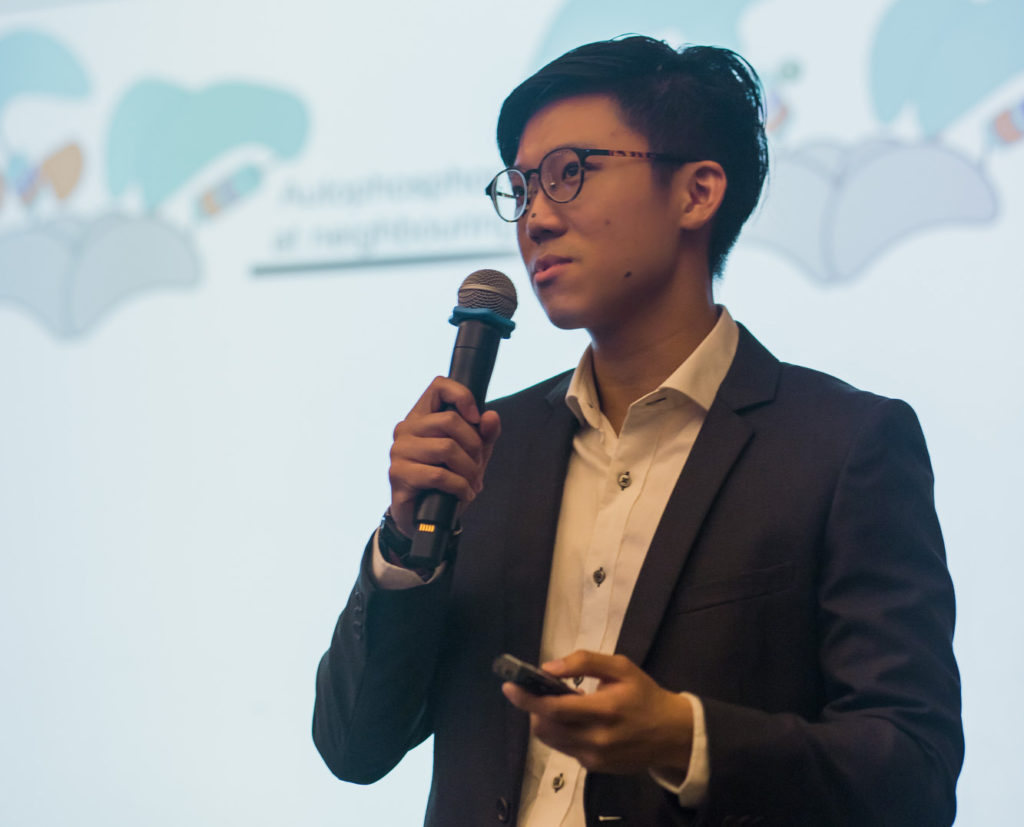 Isaac presenting his research at the Summer Research Symposium held at Yale-NUS College from 4 to 6 September 2018. Image provided by Ashbel Chioh.
Isaac presenting his research at the Summer Research Symposium held at Yale-NUS College from 4 to 6 September 2018. Image provided by Ashbel Chioh.
“This is an especially important problem because we don’t know a lot about how a neuronal circuit keeps time on intermediate timescales of minutes and seconds: how do you know when to look at the clock while you are performing a certain task?,” Isaac said.
To answer this research question, Isaac spent his time at The Crickmore Lab at Harvard and Boston Children’s Hospital, working with his colleagues to figure out the molecular mechanism of how a neuron is able to receive a chemical signal, reinterpret that information over a few minutes, and afterwards, send a distinct signal as its downstream output.
On why he decided to take up this research opportunity, Isaac shared that because he was considering pursuing a PhD, he wanted to “see whether I would enjoy doing research full-time for an extended period of time away from the place where I grew up”.
This interest developed after he worked on a genomic field research project on stalk-eyed flies with Assistant Professor of Science (Life Sciences) Philip Johns.
“Dr Philip Johns was a warm welcoming hand to the field after I switched to majoring in Life Sciences from History. After working on the project last summer, I felt very invested in the research we were doing. This led me to continue working together with him and the rest of the team over the past academic year as well,” Isaac shared.
“After this summer experience, I’m convinced that I want to undertake a PhD in the life sciences after I graduate from Yale-NUS,” he added.
According to Zhana Sandeva, Programme Manager, Leadership & Global Citizenship at the Yale-NUS Centre for International & Professional Experience (CIPE), the objective of such summer programmes is to provide professional development and networking opportunities for students keen on pursuing graduate school in the sciences. The programmes are part of CIPE’s Summer Research Opportunities.
For Jiayun, her biggest takeaway from this summer experience has been rediscovering physics.
“My supervisor is one of the best professors that I’ve ever met. He showed me how to build up “intuitions” for physics, which helps me to gain a much deeper understanding in physics,” she shared. “I had thought I understood certain things but I was wrong. Physics is not just about borrowing equations and applying mathematical derivations in a book. There’s a reason that the frameworks of physics have been established in certain ways and every single math equation in physics has its own conceptual meaning.”
Similarly, Isaac shared that being at a large research university like Harvard has made him realise the importance of “stepping outside of one’s comfort zone and work with the best people in whichever chosen field.”
“For me, there really is no other place like Boston: strong research institutions as well as the large science start-up culture provide exciting opportunities for any scientist who chooses to come here. I’m changed by being here and would love to come back again to do research,” he added.
Reflecting on his experience, Isaac added that his experience “would not have been possible without the support of the CIPE team and the Harvard administration team who coordinated my involvement in SHURP.”
“I’ve learned so much from my lab members at The Crickmore Lab and I’ll miss working together with them so intensely on our project. I am also grateful to Maximilian Pitsch, a research associate with the lab, for being a supportive and knowledgeable mentor,” he added.
As a follow up to the research projects undertaken over the past summer, students presented their projects at the annual Summer Research Symposium held from 4 to 6 September to share their knowledge with the Yale-NUS Community.
Having received encouraging feedback from the students who participated in this year’s research partnerships, Ms Sandeva shared that she “looks forward to enabling more students to experience robust overseas research opportunities next year.”
“All of the students who attended the programmes this year have received excellent support from their respective research communities and have strengthened their commitment to the sciences,” she noted.

